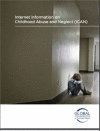Screening for consequences of trauma - an update on the global collaboration on traumatic stress
- PMID: 32489523
- PMCID: PMC7241533
- DOI: 10.1080/20008198.2020.1752504
Screening for consequences of trauma - an update on the global collaboration on traumatic stress
Abstract
This letter provides an update on the activities of "The Global Collaboration on Traumatic Stress" (GC-TS) as first described by Schnyder et al. in 2017. It presents in further detail the projects of the first theme, in particular the development of and initial data on the Global Psychotrauma Screen (GPS), a brief instrument designed to screen for the wide range of potential outcomes of trauma. English language data and ongoing studies in several languages provide a first indication that the GPS is a feasible, reliable and valid tool, a tool that may be very useful in the current pandemic of the coronavirus disease 2019 (COVID-19). Further multi-language and cross-cultural validation is needed. Since the start of the GC-TS, new themes have been introduced to focus on in the coming years: a) Forcibly displaced persons, b) Global prevalence of stress and trauma related disorders, c) Socio-emotional development across cultures, and d) Collaborating to make traumatic stress research data "FAIR". The most recent theme added is that of Global crises, currently focusing on COVID-19-related projects.
Keywords: Psychotrauma; childhood abuse; global mental health; questionnaire; screening.
© 2020 The Author(s). Published by Informa UK Limited, trading as Taylor & Francis Group.
Conflict of interest statement
No potential conflict of interest was reported by the authors.
Figures
References
-
- Baekkelund, H., Frewen, P., Lanius, R., Ottesen Berg, A., & Arnevik, E. A. (2018). Trauma-related altered states of consciousness in post-traumatic stress disorder patients with or without comorbid dissociative disorders. European Journal of Psychotraumatology, 9(1), doi: 10.1080/20008198.2018.1544025. - DOI - PMC - PubMed
-
- Bisson, J. I., Berliner, L., Cloitre, M., Forbes, D., Jensen, T. K., Lewis, C., … Shapiro, F. (2019). The international society for traumatic stress studies. New guidelines for the prevention and treatment of PTSD: Methodology and development process. Journal of Traumatic Stress, 32(4), 471–8. - PubMed
-
- Bisson, J. I., Tavakoly, B., Witteveen, A. B., Ajdukovic, D., Jehel, L., Johansen, V., … Olff, M. (2010). TENTS guidelines: Development of post-disaster psychosocial care guidelines through a Delphi process. British Journal of Psychiatry, 196(1), 69–74. - PubMed
-
- Blevins, C. A., Weathers, F. W., Davis, M. T., Witte, T. K., & Domino, J. L. (2015, December). The posttraumatic stress disorder checklist for DSM-5 (PCL-5): Development and initial psychometric evaluation. Journal of Traumatic Stress, 28(6), 489–498. - PubMed
-
- Bondjers, K., Hyland, P., Roberts, N. P., Bisson, J. I., Willebrand, M., & Arnberg, F. K. (2019). Validation of a clinician-administered diagnostic measure of ICD-11 PTSD and complex PTSD: The international trauma interview in a Swedish sample. European Journal of Psychotraumatology, 10(1), doi: 10.1080/20008198.2019.1665617. - DOI - PMC - PubMed
LinkOut - more resources
Full Text Sources
Miscellaneous


